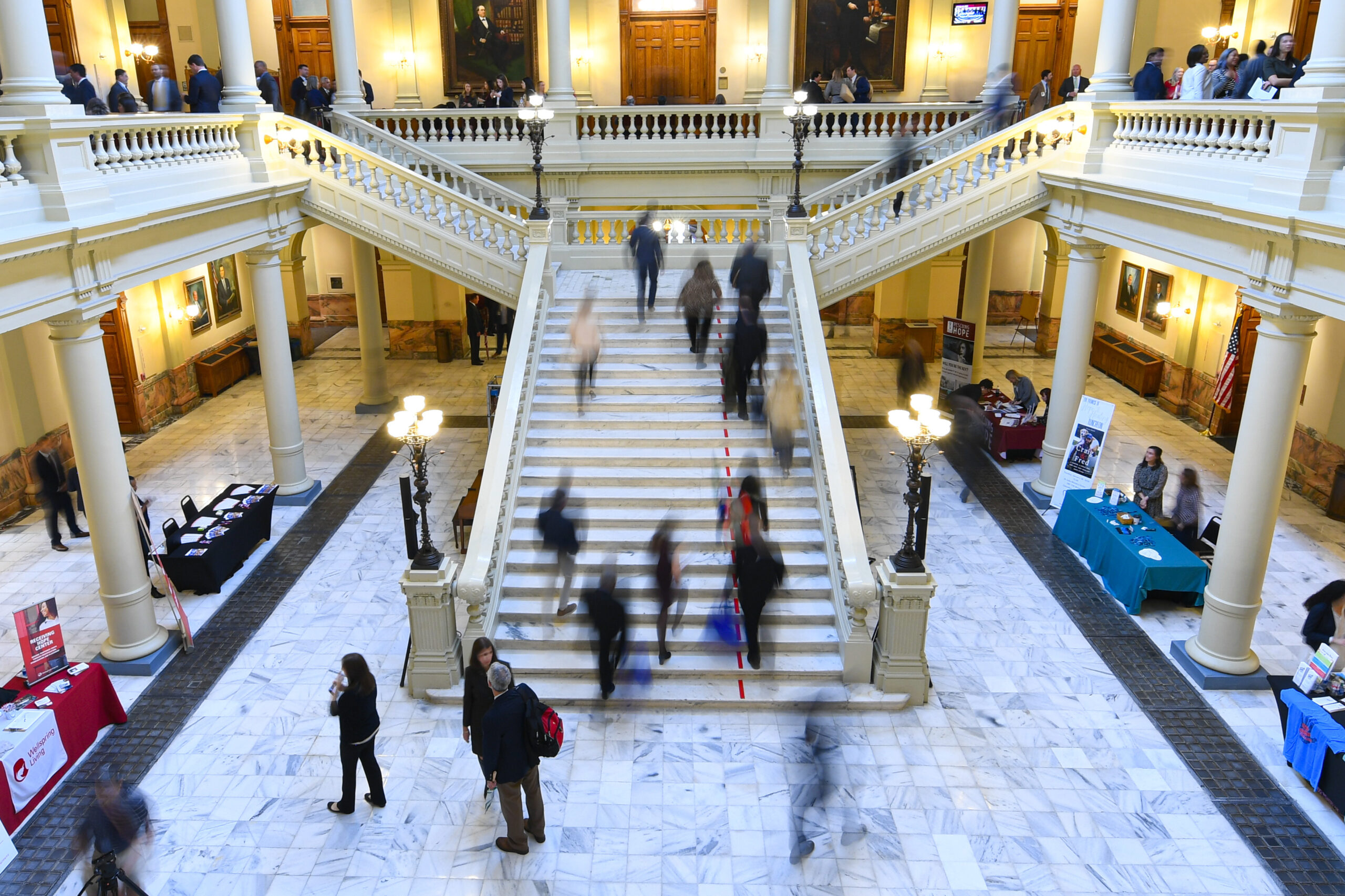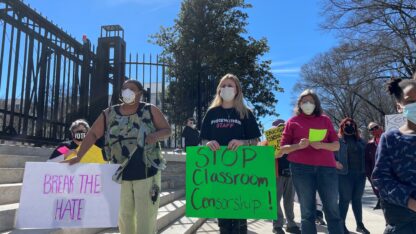A group of Georgia students delivered a letter to some state lawmakers this week opposing bills that would affect public schools. The Georgia Youth Justice Coalition said the letter is part of what they’re calling a Southern Student Rights Appeal. The group says it’s a continuation of An Appeal for Human Rights published by the Atlanta Student Movement in 1960.
The letter takes issue with several bills being considered. They include two that ban “divisive concepts” from being taught in schools, a measure that would prevent transgender girls from participating in school sports and several bills that would restrict voting access.
The students split up into groups to visit the offices of lawmakers who sponsor the bills. Most were either in session or in other meetings. So the students left the letter and their contact information with assistants, asking for a phone call or personal meeting.
Afterward, Nida Merchant says she felt good about two out of her three impromptu visits.
“Probably the first and the third were the best ones; the second ones didn’t like us. I won’t lie,” she said.
Merchant is a student at Georgia State University. She missed class to deliver copies of the letter, and her professor takes attendance. She said she’s willing to risk a lower grade to ensure her voice is heard.
“These bills are dividing up concepts of our identity, of who we are as people,” Merchant, who is Indian American, said. “They’re ignoring that from history books. They’re removing it so that people like my brother, who’s a junior in high school, doesn’t get to learn about that.”
State Sen. Bo Hatchett, a Republican from Cornelia, is the lead sponsor of Senate Bill 377, one of two bills that bans teaching “divisive concepts.” During a recent committee hearing, he denied the bill seeks to erase history.
“There are nine divisive concepts that we are trying to prevent from being taught in our schools and also I just want to reiterate that this bill in no way is going to prevent a teacher from teaching the facts of history,” Hatchett said.
One of the nine concepts SB 377 wants to ban is teachers making students feel demeaned or guilty because of their race, skin color or ethnicity. To University of Georgia student Benen Chancey, who’s Chinese American, that’s coded language.
“The word ‘student’ strikes me as just a placeholder for ‘white student’ because when you’re excluding the history and experiences of students of color, how does that not make them feel bad or guilty?” he says.
The coalition, which is made up of high school and college students across the state, has been working hard this session. Georgia Tech student Alex Ames says the group has influenced some changes in SB 377 already.
“We spent hours talking to these [lawmakers] inside and out of committee and trying to convince them censoring any education but especially higher education is just wrong,” she said. “We’re already seeing death threats against professors who teach about things like race and privilege and this bill only would make that worse.”
Hatchett told the Senate Education and Youth Committee recently that references to higher education had been stripped out of the bill.
“Based on testimony … and the constitutionality of enforcing something on an institute of higher learning, we decided to take that out and maybe address that in another bill,” he said.
Seeing that their efforts have had an effect is encouraging, Ames said. But with weeks left in the legislative session and more bills they see as problematic, their work is far from done.









